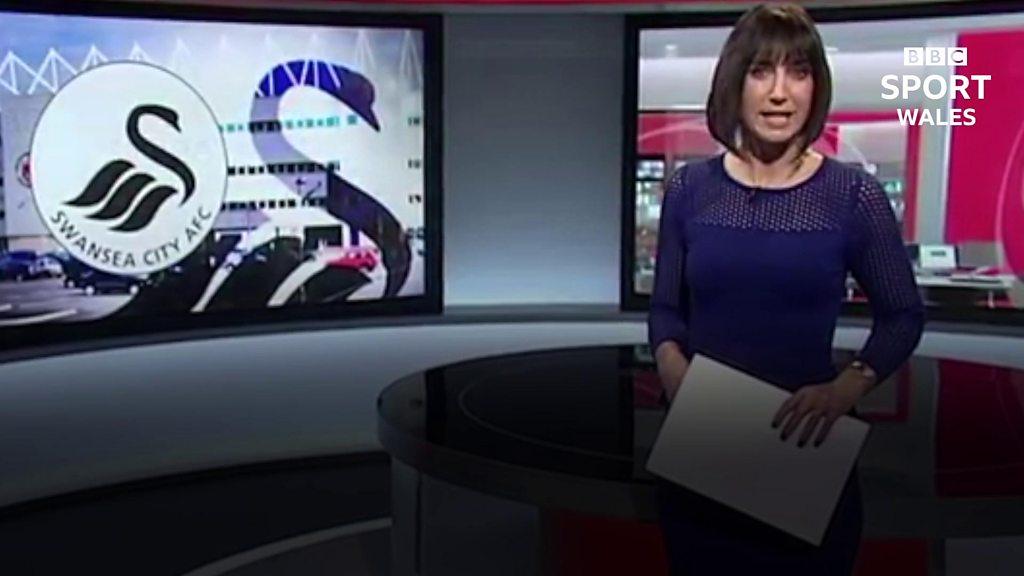Swansea City: Premier League's bottom side in crisis on and off the field
- Published
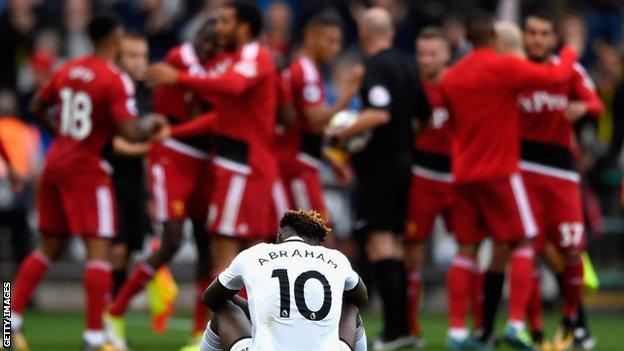
Swansea City are bottom of the Premier League table having won only three of their 18 games this season
If managerial sackings in the Premier League are commonplace, then at Swansea City they are becoming an established Christmas tradition.
Yet Paul Clement's exit - the third year in succession a Swans head coach has departed in December - represents more than the precarious nature of a top-flight manager's existence.
The Swans' sixth managerial change in two years is indicative of a deeper malaise. This is a club not only battling to preserve its top-flight status but its soul.
Their rise from the brink of financial ruin in the fourth tier of English football to the lavish riches of the Premier League was done with a distinctive style on the pitch and a conscientious, fan-led approach off it which saw Swansea often heralded as an example to other clubs.
But despite further success including a first major trophy, the League Cup, and a Europa League run, this once seemingly irresistible tale of triumph has unravelled in recent seasons.
"People used to speak of us as a model football club and how we played and went about our business," says Leon Britton, a Swansea great with more than 400 appearances to his name and now thrust into the deep end as caretaker manager.
"It's been disappointing that we've had so many managers in such a short space of time and we need to try and get the club back on track and settle down."
The search for Clement's permanent successor is ongoing, with former Crystal Palace manager Frank de Boer and ex-West Ham United boss Slaven Bilic two of the possible contenders.
What has gone wrong at Swansea City?
Last year's American takeover has proved intensely divisive, with the Swansea City Supporters' Trust - which has a 21.1% stake in the club and, uniquely in the Premier League, a representative on the board - initially kept out of the negotiations between the selling shareholders and the prospective new owners.
That lit the touch paper for revolt among the fans, whose anger towards the club's hierarchy intensified last season with a dismal cycle of limp performances and managerial upheaval which almost led to relegation.
The chairman Huw Jenkins and the club's American majority shareholders, Steve Kaplan and Jason Levien, said they would learn from this chastening experience and steer the Swans to a more stable position in this campaign.
However, the summer sale of their two best players - Gylfi Sigurdsson and Fernando Llorente - and their failure to replace them adequately left Clement with a squad desperately short of quality.
Swansea have mustered just three wins and scored a mere 10 goals in their 18 Premier League games to date, leading to Clement's sacking.
For the third successive year, Swansea will spend Christmas in the relegation zone, much to the disappointment of former manager Michael Laudrup.
"It is sad to look at the table and find Swansea at the bottom," the legendary ex-Barcelona and Denmark player tells BBC Sport Wales.
"The problem is that last season at this time it was exactly the same.

Michael Laudrup led Swansea City to their first major trophy - the League Cup - in his first season in 2013
"I read an interview with Angel Rangel, a player who has been at Swansea for many years, who said that it was sad that the 'Swansea Way' wasn't there anymore."
Laudrup was arguably the last manager to nurture the 'Swansea Way' - the fabled, intricate passing style of play, building on the foundations laid by his predecessors Brendan Rodgers and Roberto Martinez.
However, the Dane's reign was not without its difficulties, with tales of unrest among his players emerging from the dressing room within months of his appointment.
His agent, Bayram Tutumlu, also clashed with the club's directors and, when Laudrup was sacked in February 2014, Jenkins claimed the Swans' principles were being "slowly eroded".
Swansea 'sold behind the backs of the fans'
The chairman was not simply referring to the playing style but the values which had been central to Swansea's era of unprecedented success - and chief among them was the importance of the fans.
Jenkins and the vast majority of the local consortium which saved the club in 2002, external had been devoted supporters long before they had even considered a takeover.
It therefore made sense that Swansea City Supporters' Trust had a significant shareholding under the new ownership, acting as the club's conscience in its future dealings.
However, last year's American takeover broke that harmony and prompted the Trust to consider taking legal action over the manner in which the existing directors sold their shares.
Negotiations between Jenkins and Levien started in August 2015, gathered pace in December that year and the deal was completed in July 2016.
But Levien has since admitted the Trust was "not involved until about February or March 2016", while he and Kaplan also apologised for not informing the supporters' body of the final decision to appoint former manager Bob Bradley in October 2016.

Jason Levien (l) and Steve Kaplan's consortium spent around £75m on their controlling stake in Swansea City
All this has contributed to a toxic atmosphere at games in the last two seasons, with fans turning on the new owners, Jenkins and selling shareholders, accusing them of greed and goading them with chants of "get out of our club".
"We should never get away from the fact the club was sold behind the backs of the Supporters' Trust," says Phil Sumbler, who was the Trust's chairman at the time of the takeover.
"That's the bit that has ultimately led to the changes we've seen and I think it's led to the culmination of the position we're in.
"I don't think anybody would have begrudged the shareholders who'd been there for so long, feeling the need to sell and making the money the did from the sale.
"The bit that really turned the atmosphere sour was the fact the sale was conducted behind the backs of the Supporters Trust and, ultimately, that means behind the backs of the fans."
The discord at Swansea has continued, with former directors Steve Penny and Don Keefe claiming unfair dismissal and age discrimination at an employment tribunal earlier this month.
Jenkins has denied the claims, while relations between the club, the Supporters' Trust and the Swans' fans remain strained.
Sumbler has now left the Trust to join a new group, the Swansea City Supporters' Alliance.
"We've become disillusioned with the club, the way it's changed over the last two years in particular and football style-wise over the past four or five years," he adds.
"We can see things need to change. As a completely independent group we can go about it in a different way to the Supporters Trust."
One of the new group's primary aims is to remove Jenkins, whose position they believe is "untenable", external primarily because of the manner of last year's takeover, the frequent sackings of managers and poor player recruitment.
For the time being, the chairman of 15 years has no intention of stepping down and has told BBC Sport Wales he will respond to the Supporters' Alliance's calls for him to leave "when the time is right".
Jenkins, the owners, directors, coaches and players all have an enormous task on their hands - to save Swansea from relegation and, perhaps most importantly, to restore the club's fading identity.
- Published22 December 2017
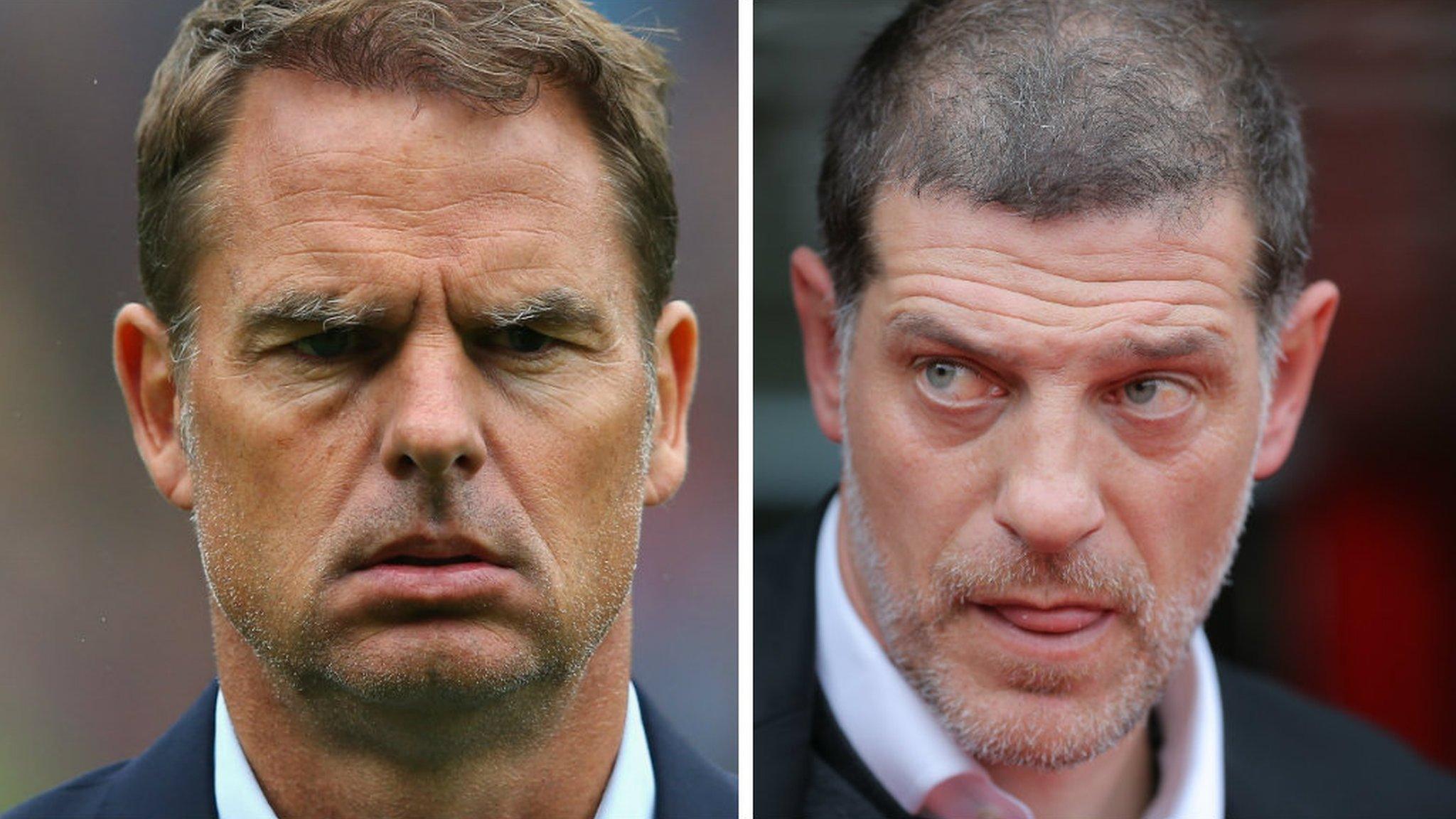
- Published21 December 2017
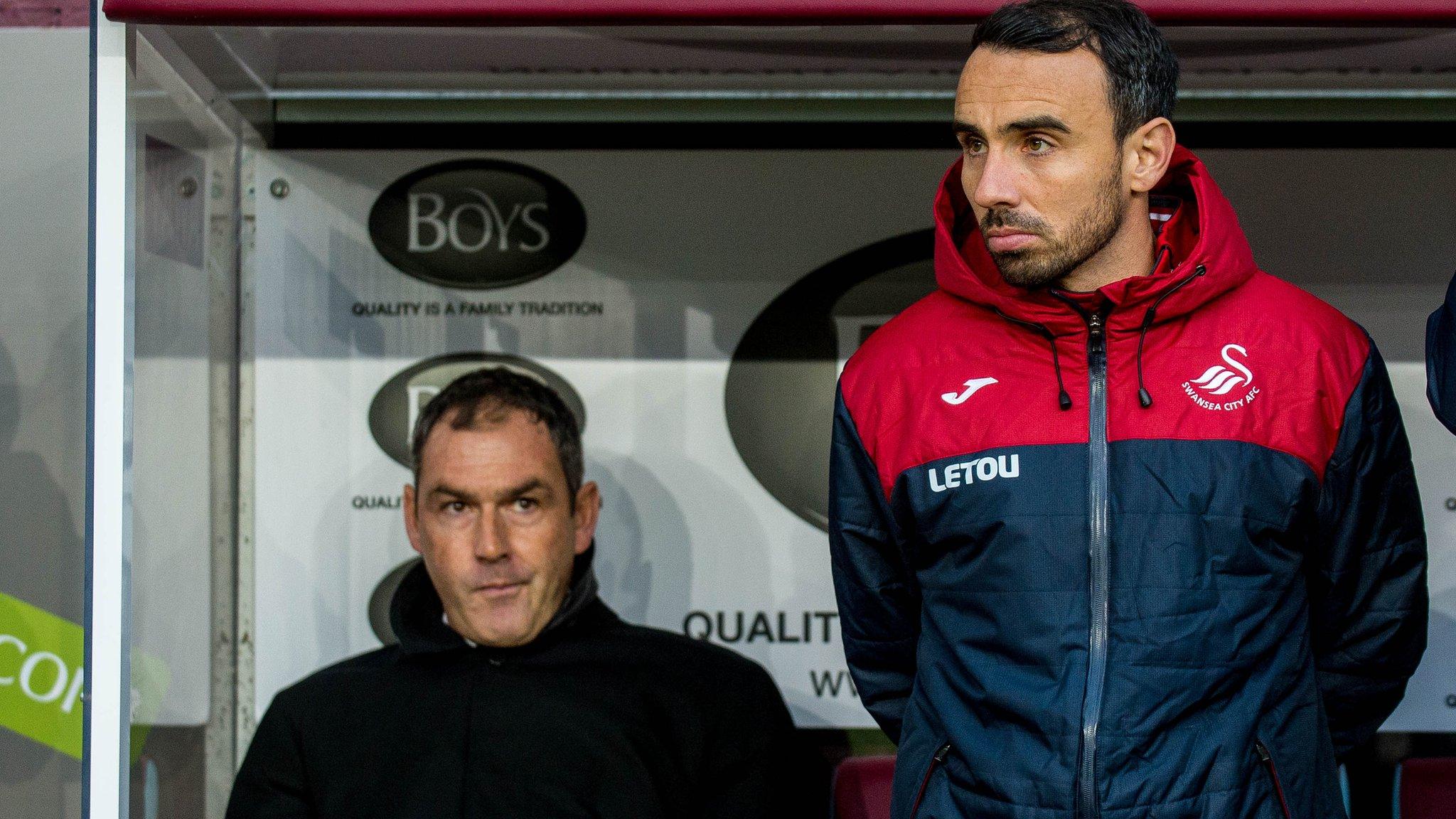
- Published23 December 2017
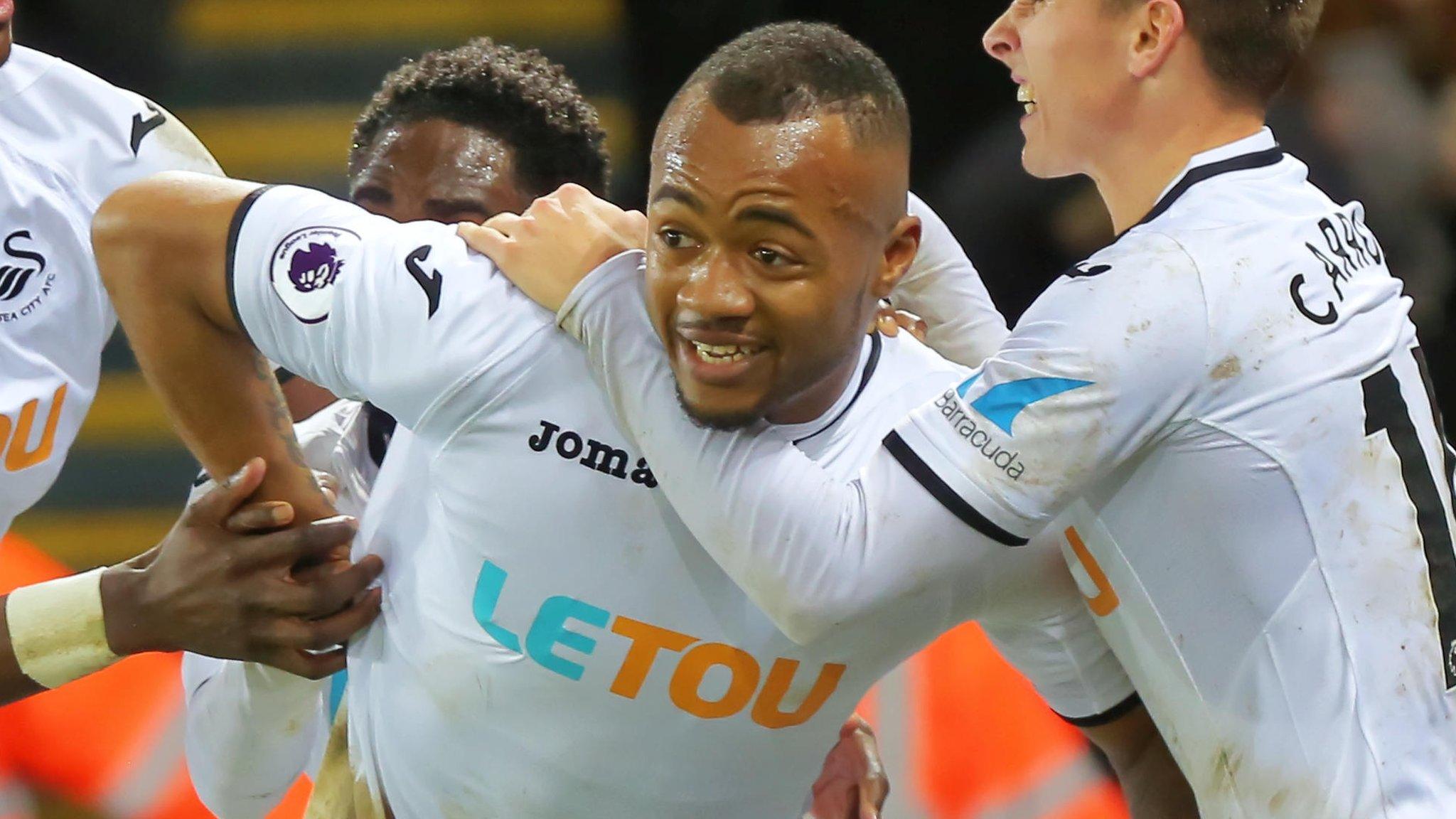
- Published21 December 2017
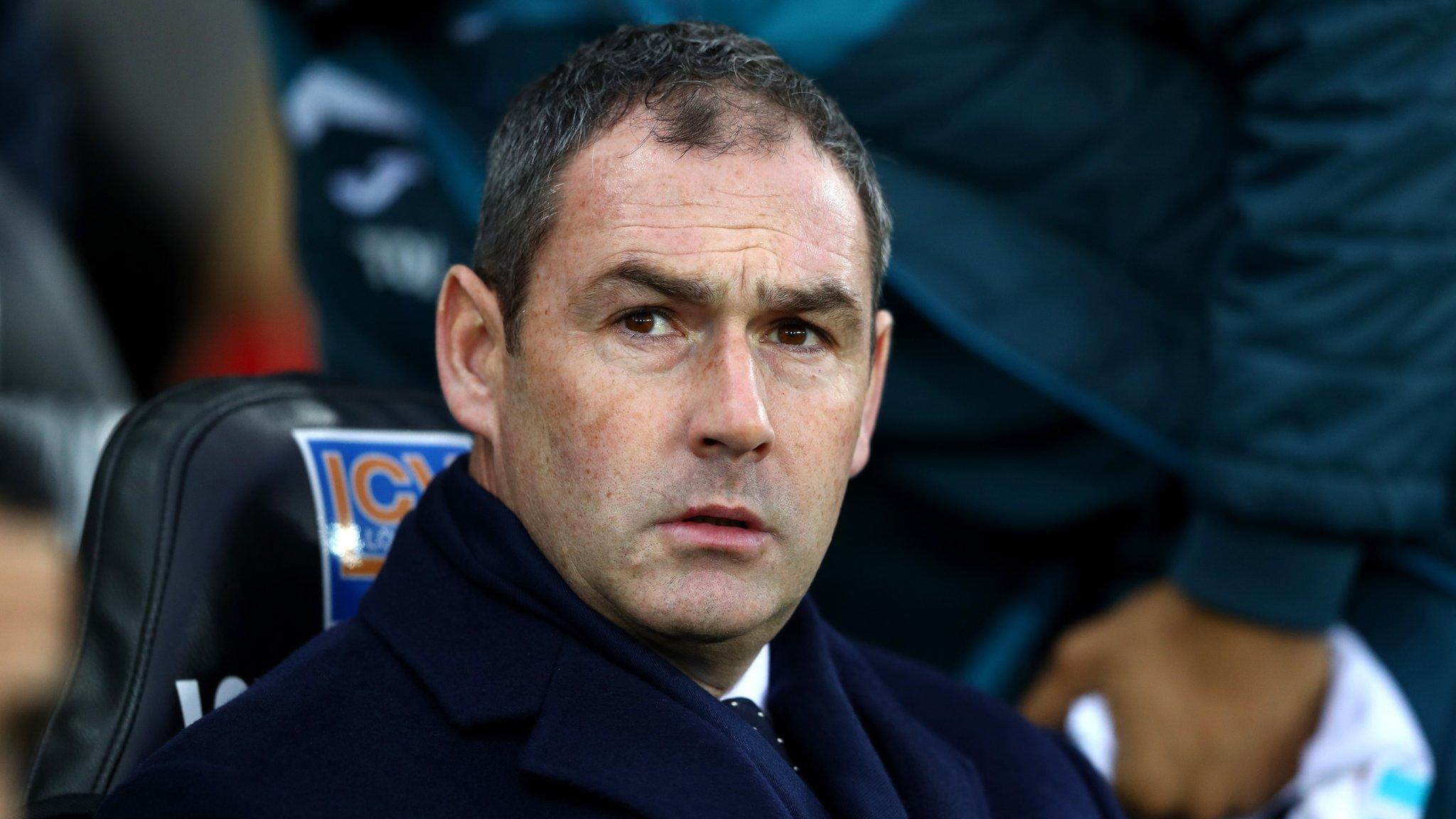
- Published21 December 2017
